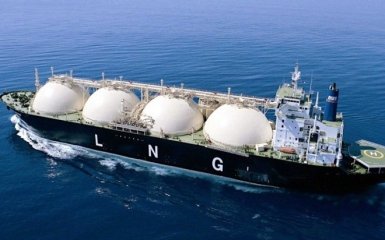Ukraine, with the help of Greece, received its first shipment of liquefied natural gas from the United States.
Points of attention
- Ukraine marks a significant energy milestone by receiving its first LNG shipment from the USA through Greece.
- The shipment of approximately 100 million cubic meters of gas, equivalent to 1 TWh of energy, highlights Ukraine's efforts to diversify its energy sources and reduce reliance on Russian gas.
- War-related restrictions on LNG transit across the Black Sea led Ukraine to utilize regasification terminals in Greece and cross-border pipelines through the 'Vertical Corridor' initiative to receive American LNG.
- Pressure from European countries like Slovakia for Ukraine to continue Russian gas transit contrasts with Ukraine's decision to seek alternative gas sources to satisfy all parties involved.
- Ukraine's refusal to transit Russian gas by January 2025 has raised concerns about potential attacks on its gas infrastructure, prompting the country to explore new partnerships in the energy sector.
What is known about the first shipment of LNG from the USA to Ukraine?
It is known that the first shipment of LNG from the USA was received by DTEK on December 27.
A shipment of approximately 100 million cubic meters of gas or 1 TWh of energy aboard the Gaslog Savannah has arrived at the Revitus LNG terminal in Greece.
D.TRADING, DTEK's European trading subsidiary, bought the entire cargo.

With the help of Greece and other partners of Ukraine, American LNG will be regasified and transferred through EU gas networks to Ukraine.
The cargo is headed through Greece due to war-related restrictions on LNG transit across the Black Sea and directly to Ukraine.
Instead, the company will use regasification terminals such as Revitusa, along with cross-border pipelines such as the Vertical Corridor initiative, which transports gas between Greece, Bulgaria, Romania, Hungary, Slovakia, Moldova and Ukraine.
What is known about Ukraine's refusal to transit Russian gas to the EU?
According to journalists from the UK, since Ukraine has made a final decision to stop the transit of Russian gas through its territory from January 1, 2025, this may lead to the Russian Federation starting to attack Ukraine's gas infrastructure, which has not happened before.
We cannot ignore the fact that Ukraine is under pressure from some European countries, in particular Slovakia, which demand the continuation of Russian gas transit.
Despite this, Kyiv agrees to transport gas from other countries if this option satisfies the partners.




